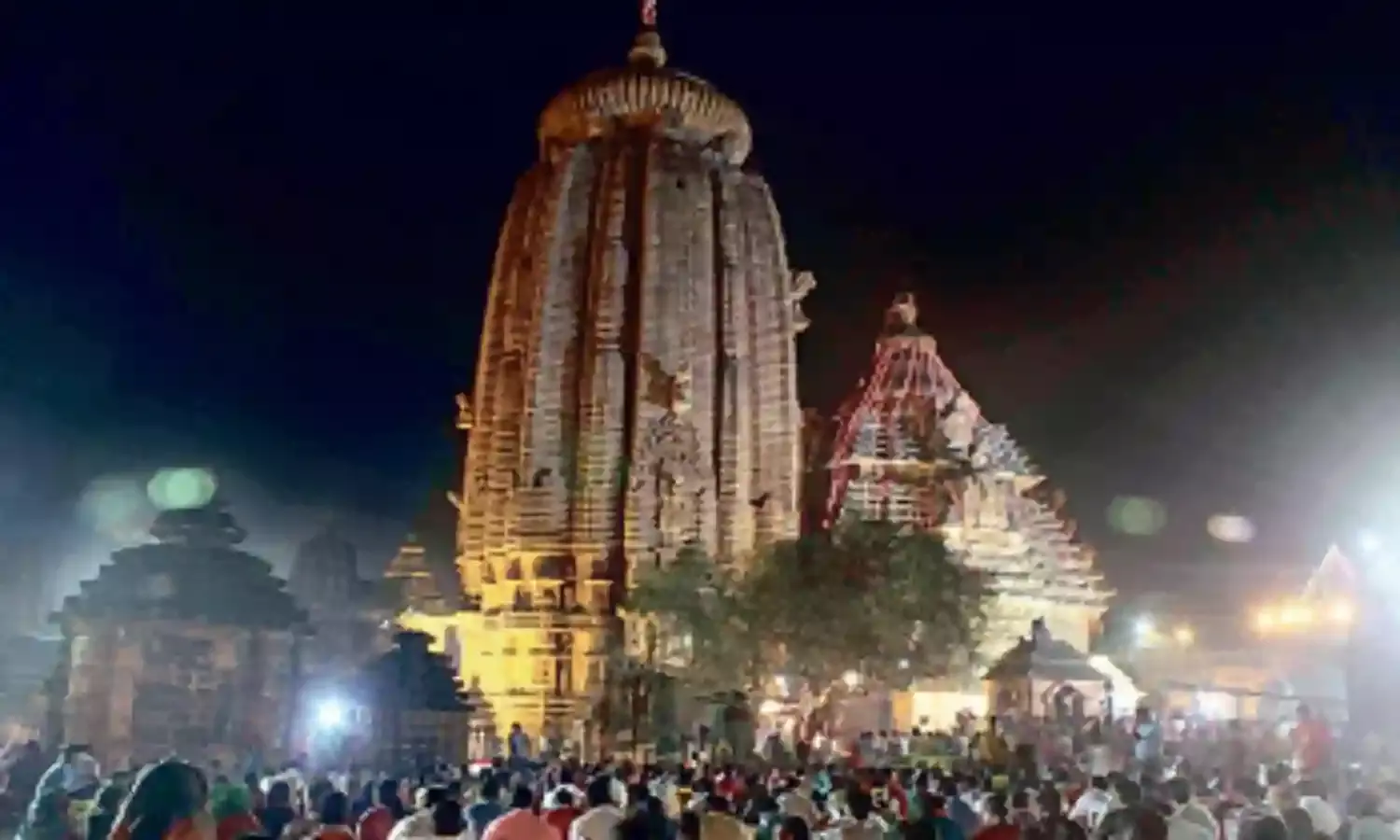Sri Lankan Buddhist Minister Denied Entry Into Temple In India
Sri Lanka’s Buddhist Minister denied entry to Odisha temple

COLOMBO: The Sri Lankan Minister of Buddhist Affairs, Gamini Jayawickrama Perera, was not allowed to enter the 11 th Century Lingaraja (Shiva) temple in Bhubaneswar, the capital of the East Indian State of Odisha.
Perera told the media here on Sunday that the temple authorities barred his entry saying he is a Buddhist and not a Hindu.
The “embarrassing” incident occurred on March 16 when he was on a tour organized by the Kalinga International Foundation he said.
“I wanted to visit the place as a devout Buddhist because the place is also historically important to Buddhists. The temple is linked to the time of King Ashoka, the great Indian emperor who spread the Dhamma around the world. Arahant Mahinda, who is depicted in Buddhist sources as being responsible for bringing Buddhism to Sri Lanka was also from Odisha. Therefore, the temple is historically important to Buddhists,” Minister Perera said.
(Gamini Jayawickrama Perera)
“I was surprised by the incident as hundreds of Lankan devotees including Buddhists visit Hindu temples in Tirupati and Kerala. The Sri Lanka High Commissioner to India was also in the delegation that visited the temple.”
The minister said that he took up the issue with Chairman of the Kalinga International Foundation, Lalit Mansingh, a former Foreign Secretary of India.
Mansingh apologized for what had taken place and assured that incidents such as this would not occur again.
The Lingaraja temple is maintained by the Temple Trust Board and the Archaeological Survey of India (ASI). While the temple compound is not open to non-Hindus there is a viewing platform beside the wall offering a good view of the exterior.
In 2012, a 35-year-old Russian tourist created quite a flutter when he entered the temple. Rituals at the temple were disrupted for nearly four hours following the foreigner's entry. Priests performed a purification ritual and dumped the cooked prasad (food offering to the deity) worth above Rs 50,000.
Other temples which do not allow non-Hindus entry are:
Somnath temple in Gujarat:
Foreigners and non-Hindus were banned from the Somnath temple in 1992 to “keep the sanctity of the shrine”.
Guruvayur Krishna temple in Kerala
The debate over the ban on non-Hindus entering Hindu temples began around 30 years ago when singer Yesudas, who planned to take part in a music program there, was stopped at the temple gate. He finally sang bhajans (Hindu devotionals) outside the temple wall. But though several other temples in Kerala have signs saying that non-Hindus, there is no strict enforcement.
In 2006, the temple officials were in turmoil when they discovered that the wife of the then Sri Lankan President Mahinda Rajapaksa was a “Christian.” Shiranthi Rajapaksa had accompanied her husband when he worshiped at the temple and presented a golden crown to the deity.
The temple authorities asked the Kerala government to confirm Shiranthi’s religious affiliation and stated that if she was a Christian ,the temple would be cleaned through special rituals. On being asked, Rajapaksa informed the Kerala Chief Minister Ommen Chandy that Shiranthi had converted to Buddhism following her marriage to him.
Jagannath temple in Puri in Odisha
“‘Only Orthodox Hindus are allowed’, reads a signboard hanging from the Lion's Gate of the Jagannath Temple in Puri, according to Rediff.com.
In the past a number of dignitaries, including former Prime Minister Indira Gandhi, were not allowed to enter the 12th century shrine, Indira was barred because she had married a Zoroastrian (non-Hindu), Feroze Gandhi. In 2005, a Thai Princess, Maha Chakri Sirindhorn, was not allowed as she was a Buddhist.
In 2012, an American, Noel Magee Hayden, was beaten up by temple security personnel when he attempted to climb the 'Nandighosh', (the proverbial Juggernaut) or chariot of Lord Jagannath during the world famous chariot procession called Ratha Jatra.
In 2006, the shrine did not allow a Swiss Christian named Elizabeth Jigler, though she had donated INR 17 million to the temple.
Kashi Vishwanath Temple
Non-Hindus are not allowed into the Vishwanath temple in Kashi or Varanasi in Uttar Pradesh, although this is not always enforced. But non Hindus are definitely barred from the Gyan Kupor well, which is part of the temple complex.
Padmanabhaswamy temple in Thiruvananthapuram in Kerala
Non-Hindu are not allowed into the 16 th.century Padmanabhaswamy temple in Thirvananthapuram in Kerala, the Kapaleeswarar temple in Chennai and the Pasupathinath temple in Kathmandu in Nepal.
The Indian and provincial governments do not interfere in the rules and regulations governing Hindu temples, except when they bar the Harijans or Dalit, as that barring them is against the law.



